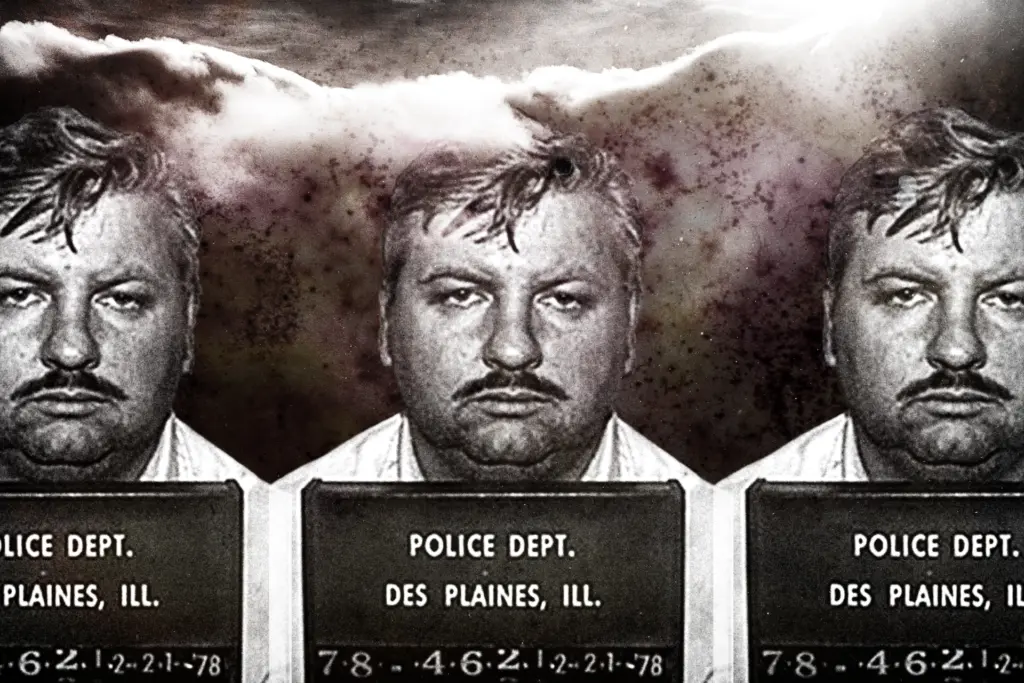The terrifying image of a killer clown who murdered at least 33 boys and men in the 1970s is often associated with John Wayne Gacy. But the notorious serial murderer was supported by a family, including his only son michael gacy, who had to deal with the fallout from his father’s atrocities.
This blog post will explore michael gacy terrifying life story, including his early years, hardships following his father’s conviction, and his work as an advocate for children who have experienced traumatic events. Michael’s tale highlights how violent acts have a wide-ranging effect on families and communities. His experiences have helped us to better appreciate the long-term consequences of such horrible atrocities and the significance of helping those who are affected by them.
Learn About michael gacy Childhood
The notorious serial murderer John Wayne Gacy, often known as the “killer clown,” was responsible for the deaths of 33 adolescents and men in the 1970s. John Wayne Gacy’s lone child, michael gacy, was born in Chicago, Illinois, in 1966. Michael’s father’s treatment of his mother, Carole, during his upbringing had a lasting impression, and Michael was exposed to his father’s violent outbursts at an early age. Despite the abuse, John adored his kid, and Michael grew up idolizing his father.
Michael’s connection with his father deteriorated as he grew older. Due to his job, John was frequently away from the family home, and when he was, he would spend the most of his time drinking and quarrelling with his wife. Carole, Michael’s mother, sought to protect her kid from her violently inclined husband while being aware of these traits. Michael was somewhat spared the agony of his father’s abuse, though.
Michael’s father was taken into custody for his horrible acts in 1978, when he was just 11 years old. Michael and the rest of the world were stunned to find the dead buried in the family home’s crawl area. Michael’s sense of identity was destroyed by learning that his father was a serial murderer, which caused him great mental suffering. Michael stayed devoted to his father despite his horrifying actions, paying him visits in jail and supporting him in the press.
After His Father’s Conviction, His Life
After his father was found guilty, michael gacy was left to deal with a society that saw him only in the context of the crimes his father had committed. He wrestled with remorse, humiliation, and stigmatization. The trauma of his father’s actions and Michael’s encounters with his father as a youngster had a significant influence on his mental health and wellbeing. His lifelong battles with melancholy and anxiety remained, and he also battled the consequences of his father’s actions.
Michael used alcohol and drugs to deal with his emotional agony, which resulted in a cycle of addiction and recovery. But with the help of his family, he was able to recover from his addiction and start anew. Michael also moved to a different state and changed his last name in an effort to disassociate himself from his father’s heritage.
Michael made the decision to publicly discuss his experiences and stand out for those who had been abused as children in his later years. He conducted media interviews and chronicled his life in the book “My Father’s Keeper.” Through his advocacy efforts, Michael sought to assist those who had also been traumatized and to increase public understanding of the lasting effects that violent crimes have on communities and families.
Looking Backward
michael gacy had to face his difficult connection with his father and his traumatic childhood when John Wayne Gacy was put to death. He joined support groups and underwent counseling to heal the emotional wounds caused by his father’s abuse and crimes. Michael also made contact with Carole, his mother, and sought to mend their broken bond.
Because of his relationship to his father, Michael has endured stigma and discrimination his whole life. He remained committed to leading a full life and having a positive effect nevertheless. He became an advocate for those who had experienced childhood trauma and tried to spread knowledge about the profound effects that violent acts have on communities and families.
michael gacy passed suddenly from heart failure in 2019 at the age of 52. His passing served as a grim reminder of the detrimental effects that trauma and emotional suffering may have on one’s health and well-being. Despite his difficulties, Michael’s life is a tribute to the strength of the human spirit and the efficacy of forgiveness and healing.
Impact and Legacies
michael gacy life had a significant impact on how the general public saw the long-lasting effects of violent crimes on families and communities. He spread awareness of the anguish and shame that victims of violent crimes and their families experience via his advocacy efforts and public speaking.
Others who had gone through similar tragedies were motivated by Michael’s readiness to address his father’s sins and move toward forgiveness and healing. His legacy serves as a reminder that, despite unfathomable suffering, healing is possible and that, by ending the cycle of violence and trauma, we may move toward a better future.
But Michael’s story also shows the difficulties that relatives of infamous offenders endure. Because of the shame and prejudice he endured throughout his life, he understands the need of helping victims and their families as well as trying to build a more understanding and compassionate society.
The conclusion
The life of michael gacy serves as a chilling reminder of the profound effects that violent acts have on communities and families. Despite his obstacles, Michael is determined to start again and use his advocacy work and public speaking to help those who have gone through similar experiences. His legacy serves as a reminder of the human spirit’s resiliency, the need of helping victims and their families, and the need to fight towards a more sympathetic society.
0
